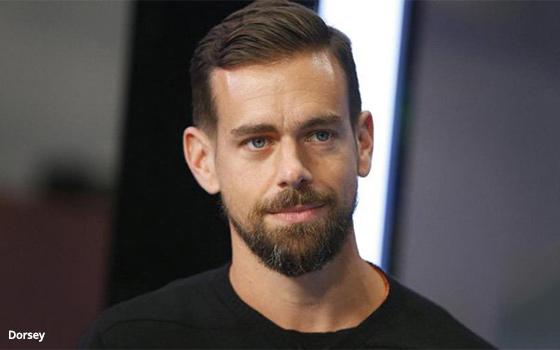
Despite the risk of
a political backlash, Twitter is doubling down on its lone support of Alex Jones and similarly controversial tweeters.
After calling Sean Hannity’s radio show on Wednesday, CEO Jack
Dorsey defended Twitter's tolerance for views that many people might find offensive, controversial, bigoted and dangerous.
“Some cultural contexts enable some speech that other cultural
contexts don't,” Dorsey told the Fox News personality.
“He hasn’t violated our rules,” Dorsey said of Jones -- who has recently drawn broad criticism for suggesting
that the Sandy Hook massacre was actually the work of the U.S. government.
“We’re going to hold Jones to the same standards we hold every account, not taking one-off actions to
make us feel good in the short term — and adding fuel to new conspiracy theories,” he explained.
The specific conspiracy theory to which Dorsey was referring involves Twitter
silencing conservative voices by various means, including “shadow banning” -- or the indirect suppression of accounts.
On the radio with Hannity, Dorsey spoke directly to those
accusations. “We do not shadow ban according to political ideology or viewpoint or content” he said.
However, Twitter is to blame for failing to properly communicate its content
standards, Dorsey admitted in an earlier tweet. “Truth is we’ve been terrible at explaining our decisions in the past,” he wrote. “We’re fixing that.”
Twitter is facing increasing pressure to crack down on Jones following his ban this week by Apple, YouTube, Facebook, Pinterest, Spotify and LinkedIn.
Along with these platforms,
Twitter says it draws the line at content considers to be harmful or threatening to others. Yet, it is clear to analysts that Twitter is struggling with its role as a platform for free speech.
“They, like other platforms where consumers can post their views on any given topic, are struggling to reconcile their sense of themselves as a platform with the reality they are more like
media companies,” said Brian Wieser, senior analyst at Pivotal Research Group.
Giving itself room to maneuver, Twitter made it clear this week that its content policies are hardly
written in stone.
“Our policies and enforcement options evolve continuously,” Del Harvey, vice president of trust and safety at Twitter, noted in a blog post. “We continue to
expand and update both them and our enforcement options to respond to the changing contours of online conversation.”